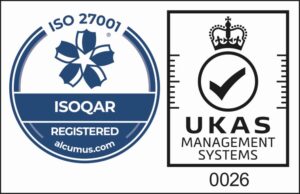IT MSPs and IT Asset Management: Maximizing Efficiency and ROI
Effective IT asset management is essential for businesses to optimize their IT infrastructure, control costs, and ensure regulatory compliance. However, managing a diverse range of hardware, software, and cloud resources can be a daunting task for organizations. This is where IT Managed Service Providers (MSPs) play a crucial role. MSPs specialize in IT asset management, helping businesses maximize efficiency and return on investment (ROI) by streamlining asset tracking, optimizing resource allocation, and implementing cost-saving measures. Let’s explore the role of IT MSPs in IT asset management and how they contribute to maximizing efficiency and ROI:
Comprehensive Asset Inventory
MSPs work with businesses to create a comprehensive inventory of all IT assets, including hardware, software, licenses, and cloud subscriptions. By maintaining an up-to-date asset inventory, businesses gain visibility into their IT landscape, enabling effective resource allocation and cost control.
Asset Lifecycle Management
MSPs assist businesses in managing the entire lifecycle of IT assets, from procurement to retirement. They track asset warranties, support contracts, and end-of-life dates, ensuring timely renewals or replacements and avoiding unexpected disruptions.
License Management and Compliance
MSPs help businesses manage software licenses to ensure compliance with vendor terms and regulatory requirements. By optimizing license usage and avoiding over-licensing, businesses can reduce unnecessary costs and mitigate compliance risks.
Cost Optimization
MSPs analyze asset utilization and identify underused or redundant resources. By optimizing asset allocation and utilization, businesses can reduce unnecessary expenses and achieve cost savings.
Vendor and Contract Management
MSPs assist businesses in managing relationships with IT vendors, negotiating contracts, and optimizing vendor performance. They help businesses choose the right vendors and negotiate favorable terms, resulting in cost-effective services and solutions.
Cloud Resource Optimization
As businesses increasingly adopt cloud services, MSPs help optimize cloud resource usage to avoid unnecessary expenses. They monitor cloud usage, right-size resources, and implement cost management strategies, ensuring businesses only pay for what they need.
Security and Compliance
MSPs ensure that IT assets are properly secured and compliant with industry regulations and security best practices. They implement security measures, such as access controls and encryption, to safeguard sensitive data and protect against cyber threats.
Asset Tracking and Reporting
MSPs provide businesses with regular asset tracking reports, giving insights into asset utilization, costs, and performance. These reports enable businesses to make data-driven decisions for asset optimization and budget planning.
Disaster Recovery and Business Continuity
MSPs include IT assets in disaster recovery and business continuity plans, ensuring data and applications can be restored quickly in the event of a disruption. This reduces downtime and minimizes the impact on business operations.
IT Asset Governance
MSPs help businesses establish IT asset governance policies and procedures, ensuring consistent asset management practices across the organization. This enhances accountability and promotes standardized asset management practices.
By partnering with IT MSPs for IT asset management, businesses can efficiently manage their IT resources, reduce unnecessary expenses, and maximize ROI. MSPs bring expertise in asset tracking tools, license management, cost optimization strategies, and security measures, enabling businesses to streamline their IT asset management processes and focus on their core business objectives. With the support of MSPs, businesses can achieve optimal efficiency, cost control, and compliance in managing their IT assets, contributing to overall business success and growth.




